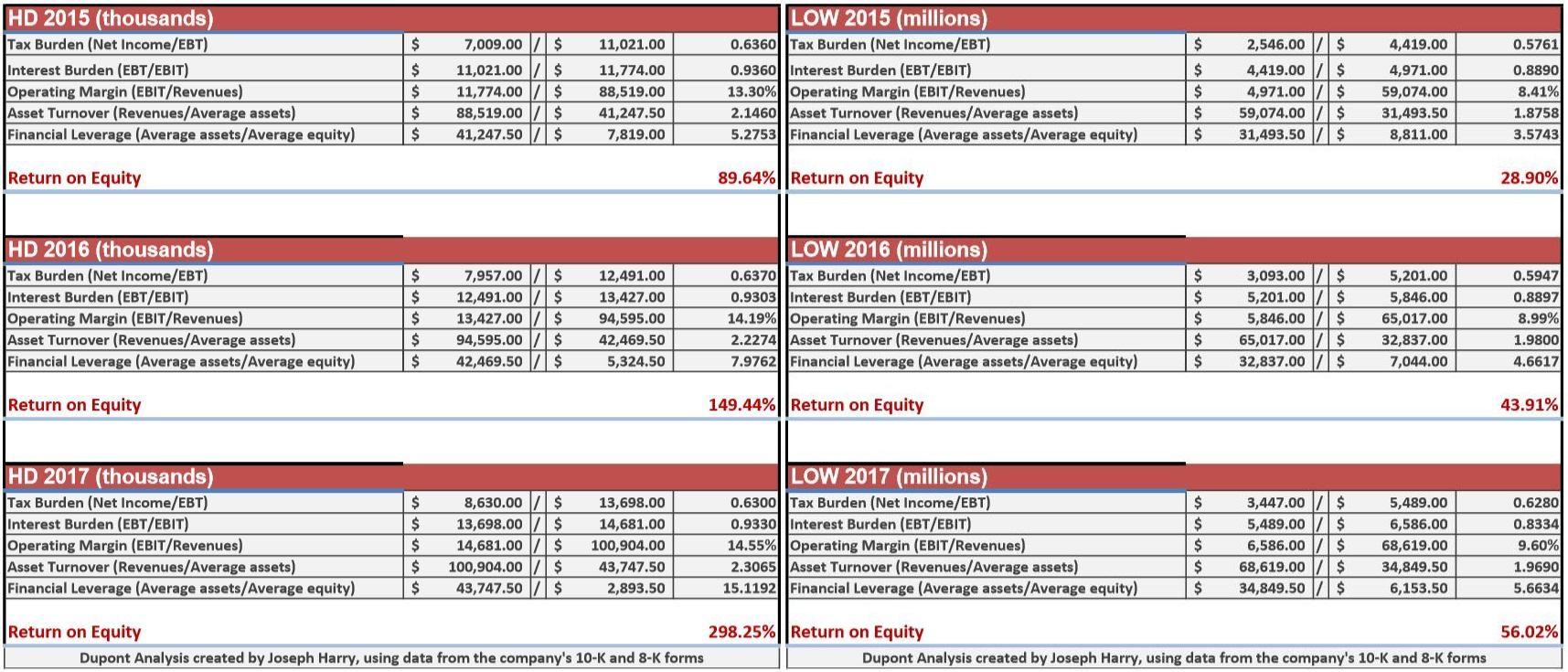Table of Content
Market capitalization, also called net worth, is the total value of all of a company's outstanding shares. It is calculated by multiplying the stock price by the number of shares outstanding. As of December 2022 Home Depot has a market cap of $321.15 Billion. This makes Home Depot the world's 22th most valuable company by market cap according to our data. The market capitalization, commonly called market cap, is the total market value of a publicly traded company's outstanding shares and is commonly used to measure how much a company is worth. Valuations are an essential part of business, for companies themselves, but also for investors.

Zacks Ranks stocks can, and often do, change throughout the month. Certain Zacks Rank stocks for which no month-end price was available, pricing information was not collected, or for certain other reasons have been excluded from these return calculations. Home Depot's stock price is the clearest measure of market expectations about its performance. Without stock valuation, investors cannot independently discern whether Home Depot's value is low or high relative to the company's performance and growth projections. Determining the market value of Home Depot can be done in different ways, such as multiplying its stock price by its outstanding shares.
Live at noon: How will payments stocks like Visa and Mastercard fare in 2023?
In the same 10 years mentioned above, when revenue grew by 7.9%, the company increased earnings per share at a compound annual rate of 20.2%. Market cap is the total market value of a publicly traded company's outstanding shares. Home Depot reported $321.04B in Market Capitalization this December of 2022, considering the latest stock price and the number of outstanding shares. Our valuation method for Home Depot is useful when determining the fair value of the Home Depot stock, which is usually determined by what a typical buyer is willing to pay for full or partial control of Home Depot.
Stuck at home with limited options on what they could do with their time and money, consumers opted to take on more home improvement projects. Since September 22, 1981, The Home Depot, Inc.'s market cap has increased from $47.58M to $320.88B, an increase of 674,304.76%. When recent performance has been volatile, it helps to look at the longer term. Home Depot has grown revenue in the previous decade at a compound annual rate of 7.9%. The unprecedented circumstances of the pandemic caused sales to surge in its two most-recent fiscal years.
About Market Cap
The industry with the worst average Zacks Rank would place in the bottom 1%. An industry with a larger percentage of Zacks Rank #1's and #2's will have a better average Zacks Rank than one with a larger percentage of Zacks Rank #4's and #5's. The Zacks Industry Rank assigns a rating to each of the 265 X Industries based on their average Zacks Rank.
When choosing an evaluation method for Home Depot, ensure it is appropriate for the firm given its current financial situation and market classification. If more than one evaluation category is relevant, we suggest using both methods to arrive at a better estimate. The Home Depot, Inc. is a home improvement retailers operating 2,300 stores in the U.S, Canada, and Mexico. Offerings include building materials, home improvement products, lawn and garden products, and decor products.
Analyst Ratings
You can also try Headlines Timeline module to stay connected to all market stories and filter out noise. Today, many businesses are growing remarkably fast but are generating massive losses on the bottom line without demonstrating any economies of scale. These are safe long-term investments to hold that will also provide you with reliable dividend income over the years. The Home Depot's annual market cap increased from Jan. 2020 ($245,664 Mil) to Jan. 2021 ($291,673 Mil) and increased from Jan. 2021 ($291,673 Mil) to Jan. 2022 ($379,824 Mil). As an investor, you want to buy stocks with the highest probability of success.

The Home Depot, Inc is an American home improvement chain based in Atlanta. It operates 2,284 DIY stores in North America and claims to be the largest DIY store chain in the world. The Dow Jones rallied 375 points Wednesday after consumer and housing data, as Nike stock surged 15% on strong earnings results. WallStreetZen does not provide financial advice and does not issue recommendations or offers to buy stock or sell any security.
Market Data
The investors' valuation analysis is an important metric that will give you a perspective on different companies. It helps you know the worth of the potential investment in Home Depot and how it compares across the competition. Comparative valuation analysis is a catch-all model that can be used if you cannot value Home Depot by discounting back its dividends or cash flows. This model doesn't attempt to find an intrinsic value for Home Depot's Stock . Still, instead, it compares the stock's price multiples to a benchmark or nearest competition to determine if the stock is relatively undervalued or overvalued. The P/E ratio is the most commonly used of these ratios because it focuses on the Home Depot's earnings, one of the primary drivers of an investment's value.
In most cases it can be easily calculated by multiplying the share price with the amount of outstanding shares. When running Home Depot price analysis, check to measure Home Depot's market volatility, profitability, liquidity, solvency, efficiency, growth potential, financial leverage, and other vital indicators. We have many different tools that can be utilized to determine how healthy Home Depot is operating at the current time. Most of Home Depot's value examination focuses on studying past and present price action to predict the probability of Home Depot's future price movements. You can analyze the entity against its peers and financial market as a whole to determine factors that move Home Depot's price.
This metric is important because it gives you an idea of the size of a company, and how the size has changed over time. The company's Market Capitalization is a measurement of company size. It is calculation of the company's share price times the number of outstanding shares. Large market cap companies give stability and are good long-term investments. Small market cap companies can produce faster growth and bigger returns, but their stockholders are exposed to more risk. It is equal to the share price times the number of shares outstanding.

Home Depot's valuation analysis is also a process of estimating the intrinsic value of all assets and outstanding equities. There are different methodologies and models we use to develop the final Home Depot's valuation. The techniques such as discounted cash flow and fundamental indicators such as book value per share or market capitalization are well known and widely used across most financial advisers and money managers. Market Capitalization measures the total value of a company based on their stock price multiplied by the shares outstanding.
The financial industry is built on trying to define current growth potential and future valuation accurately. All the valuation information about Home Depot listed above have to be considered, but the key to understanding future value is determining which factors weigh more heavily than others. Please note that valuation analysis is one of the essential comprehensive assessments in business. It evaluates Home Depot's worth, which you can determine by considering its current assets, liabilities and future cash flows.
Since Home Depot is currently traded on the exchange, buyers and sellers on that exchange determine the market value of Home Depot Stock. Market capitalization had nearly tripled before shedding over $100 billion in 2022. The home improvement retailer was a surprise winner during the pandemic phases, where business closures were common.
High-Yielding Dividend Stocks You Can Buy and Forget About
API GATEWAY Direct access to our data from your apps using any programing language. Researching stocks has never been so easy or insightful as with the ZER Analyst and Snapshot reports. The industry with the best average Zacks Rank would be considered the top industry , which would place it in the top 1% of Zacks Ranked Industries.

For companies, such as Home Depot, valuations can help measure their progress and success and can help them track their performance in the market compared to others. In addition, investors can use Home Depot's valuations to help determine the worth of potential investments. They can do this by using data and information made public by a company. Regardless of who the valuation is for, it essentially describes Home Depot's worth. The acquisition of distributor Interline Brands in 2015 allowed Home Depot to enter the maintenance, repair, and operations business, which has been expanded through the tie-up with HD Supply . The addition of the Company Store brought textile exposure to Home Depot's lineup.






